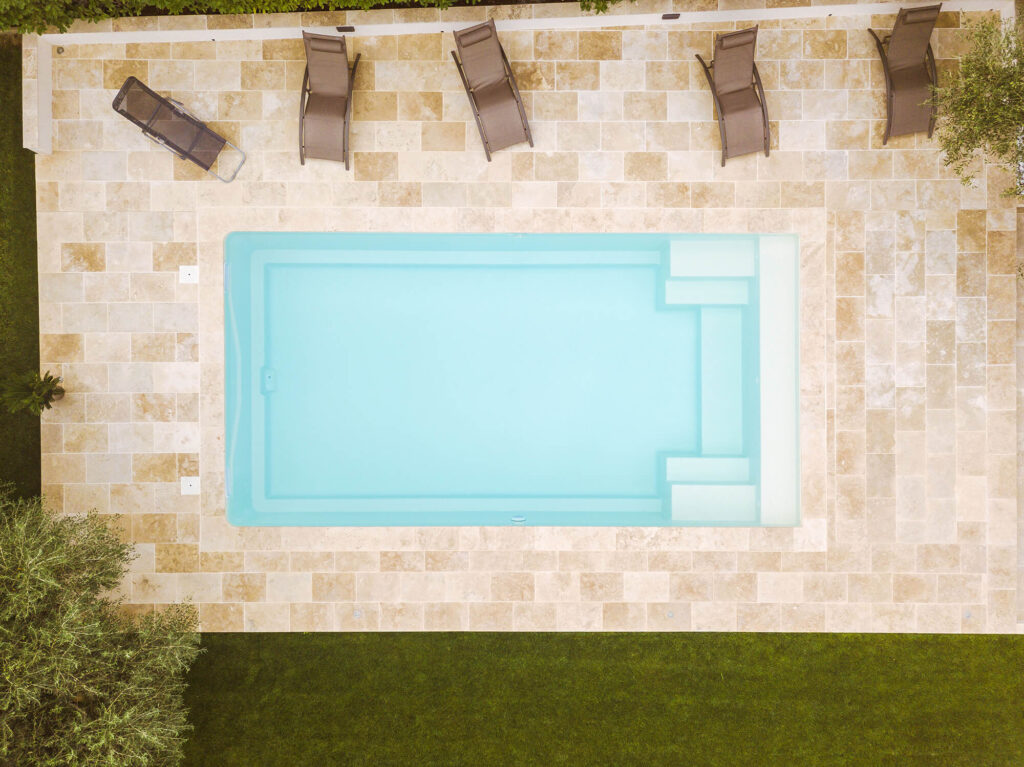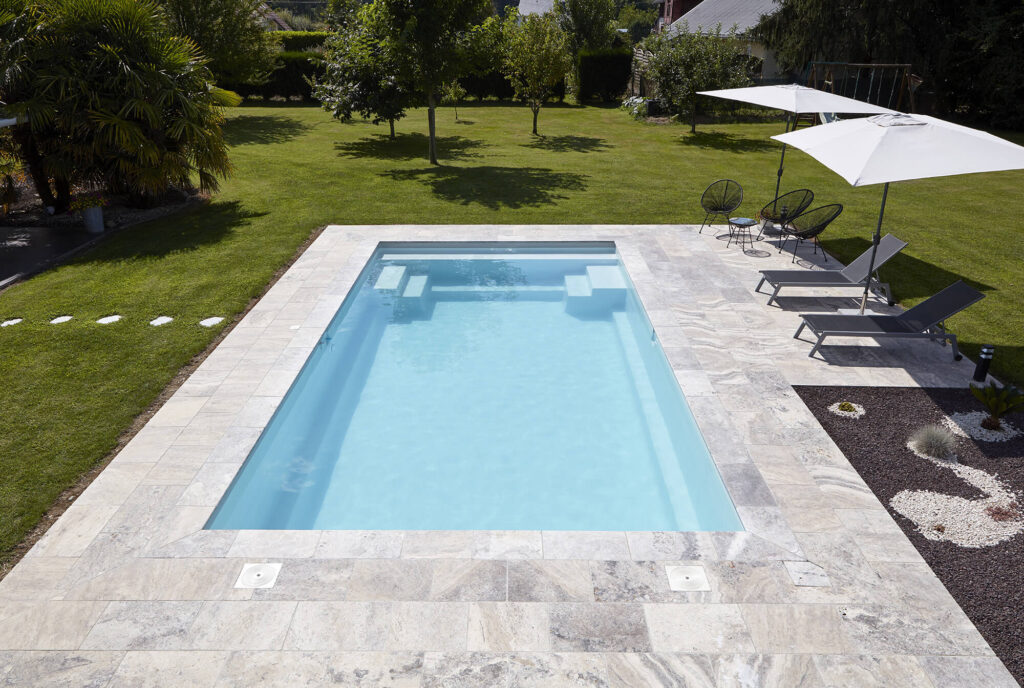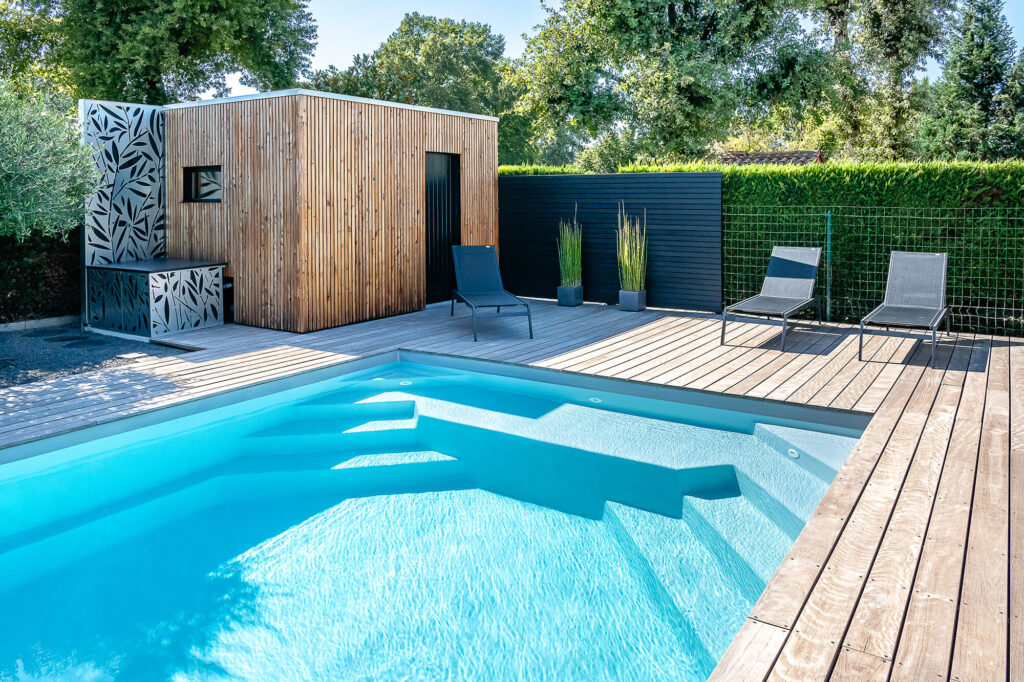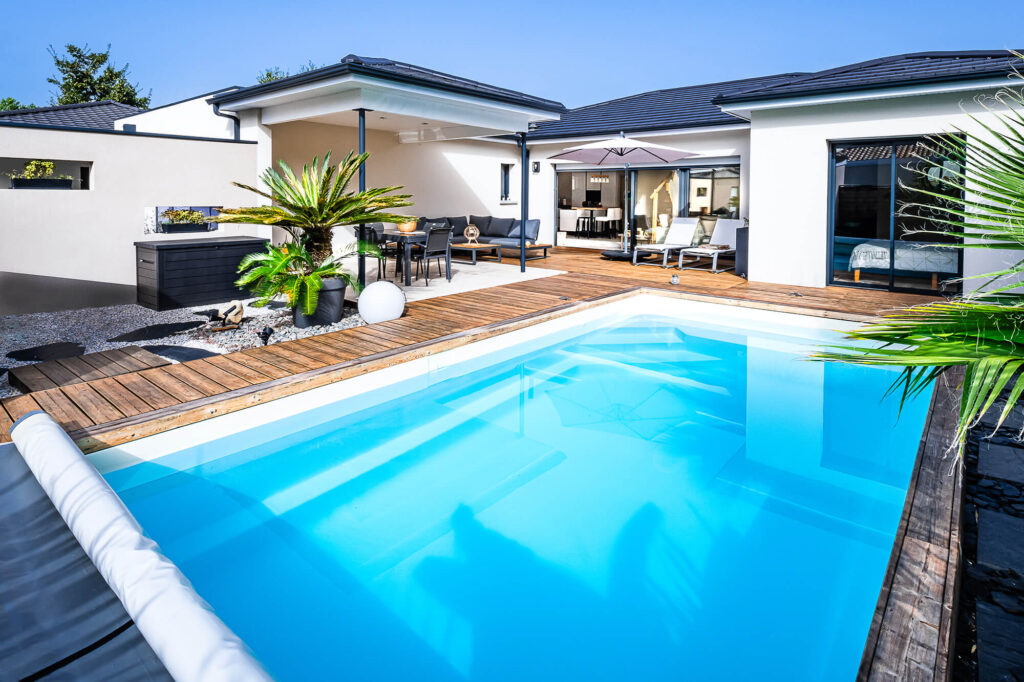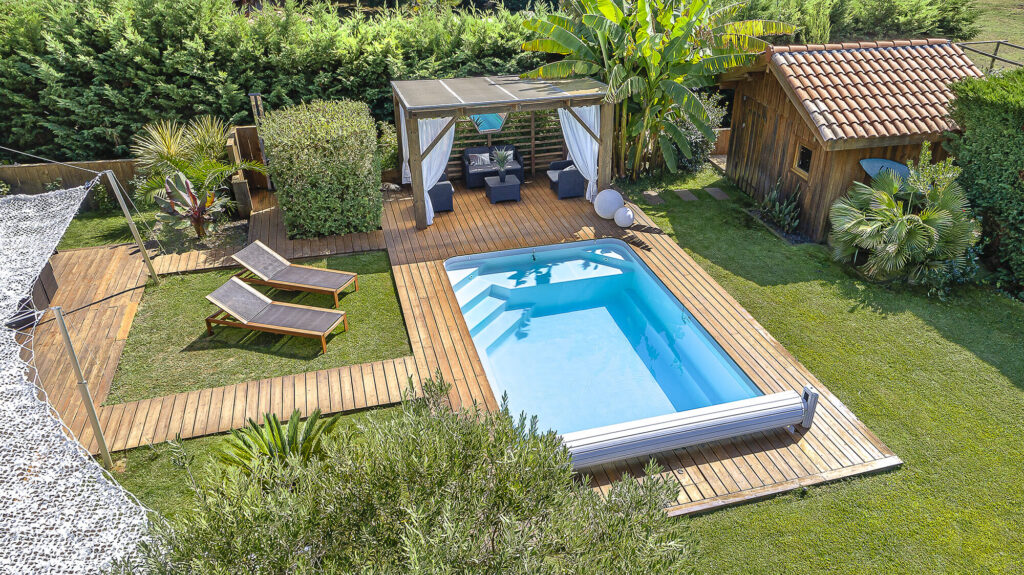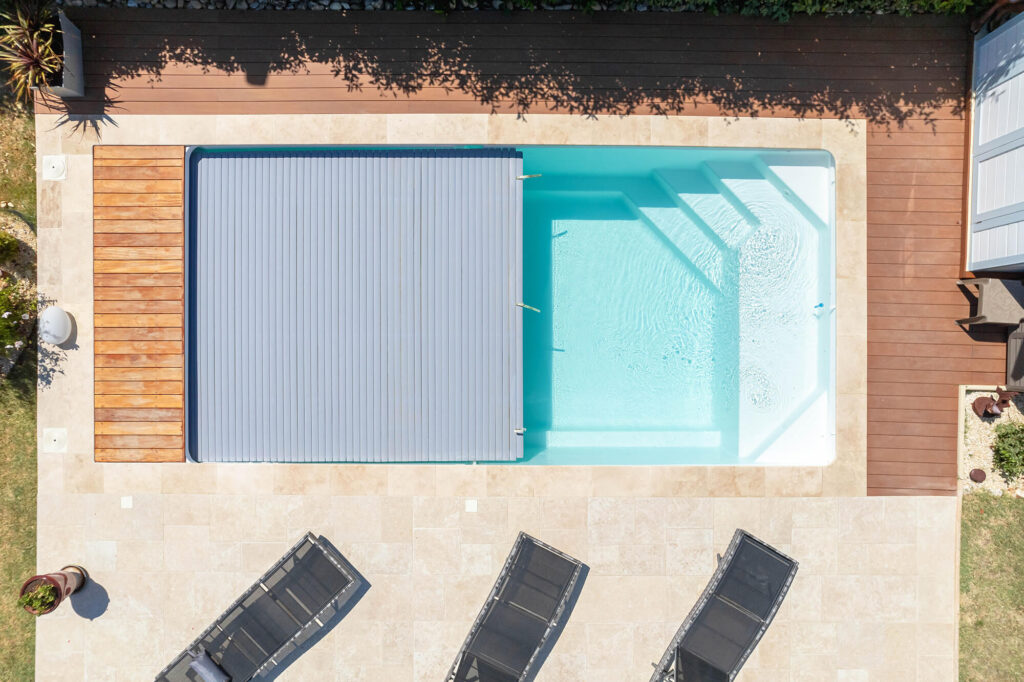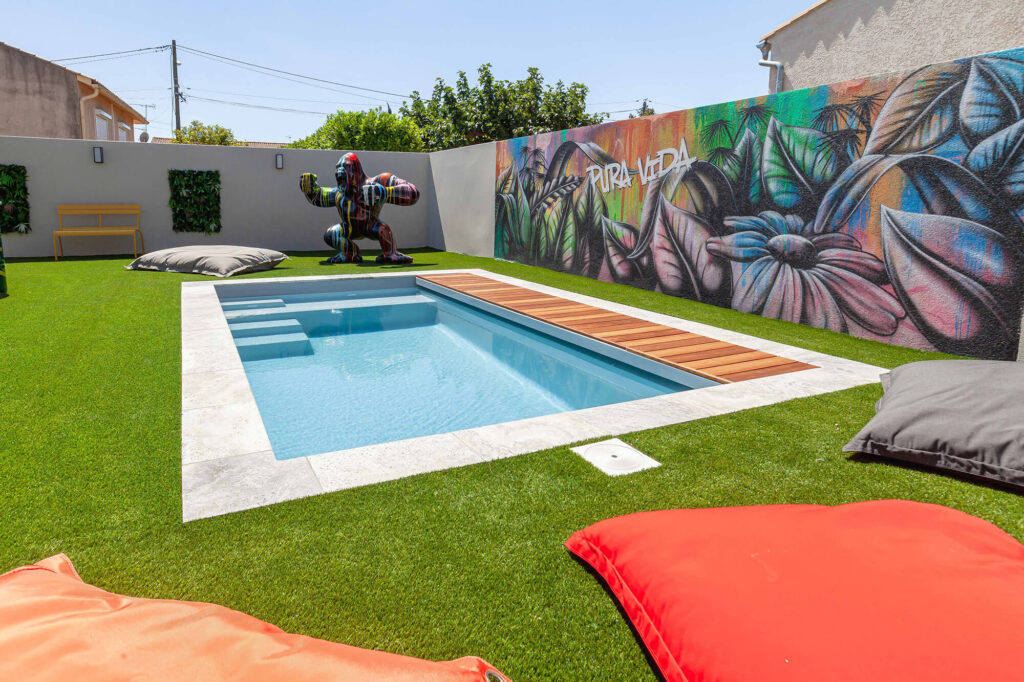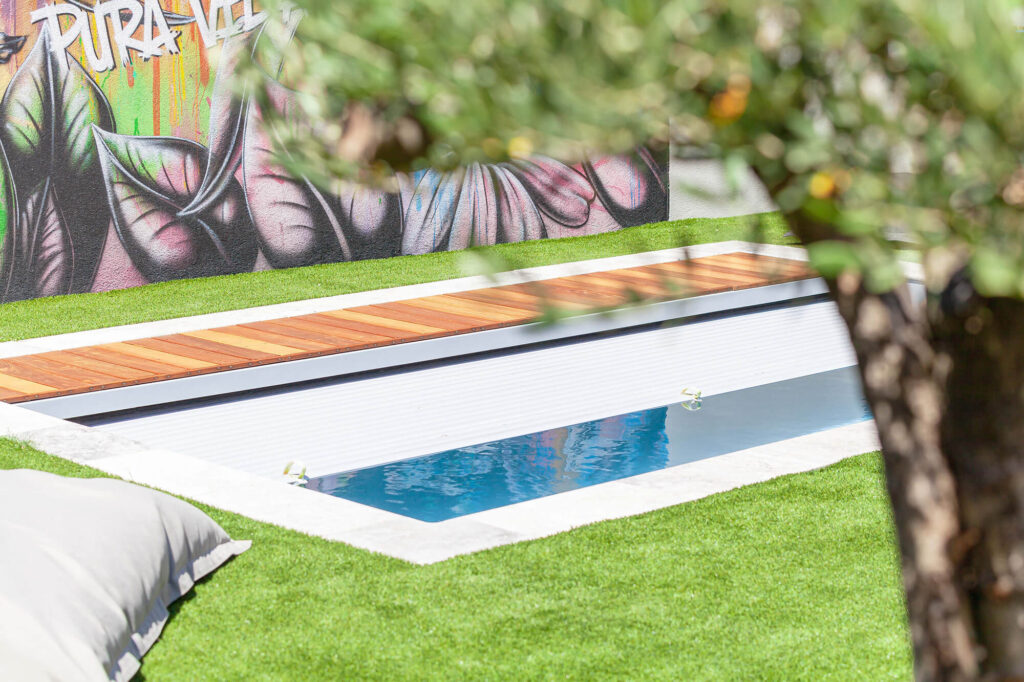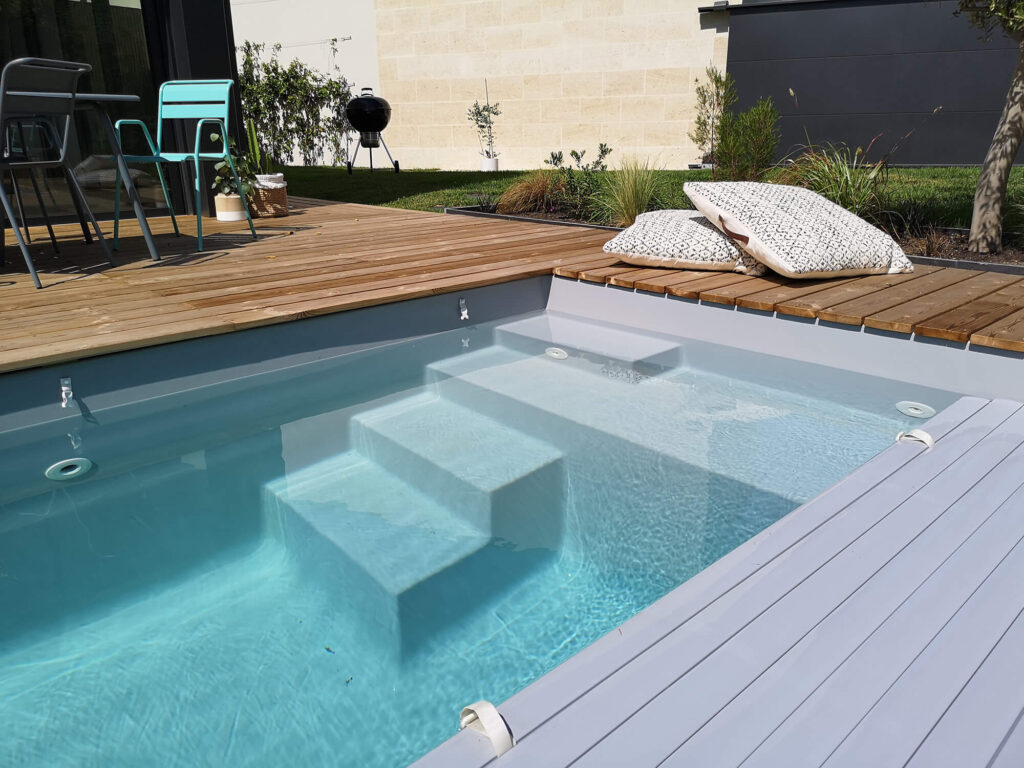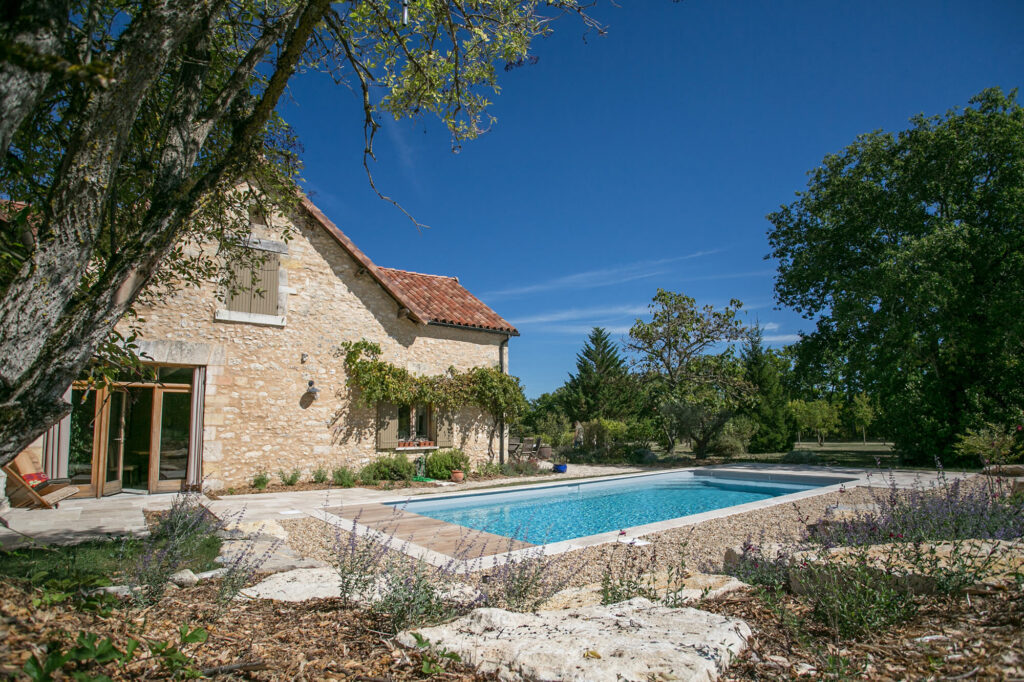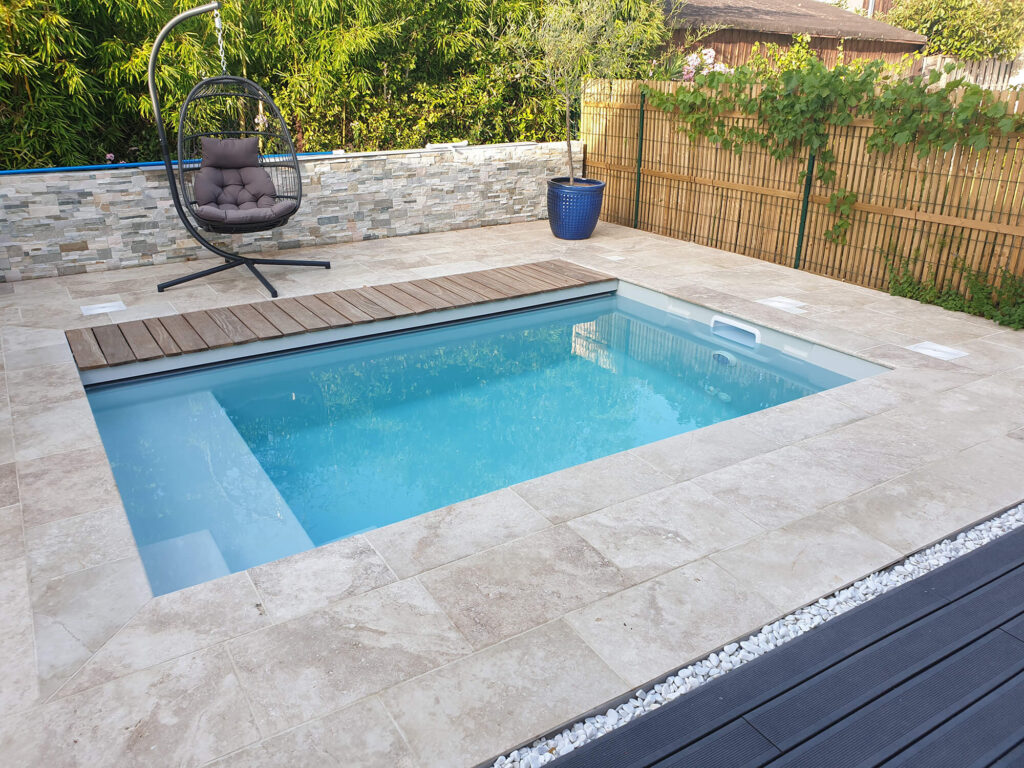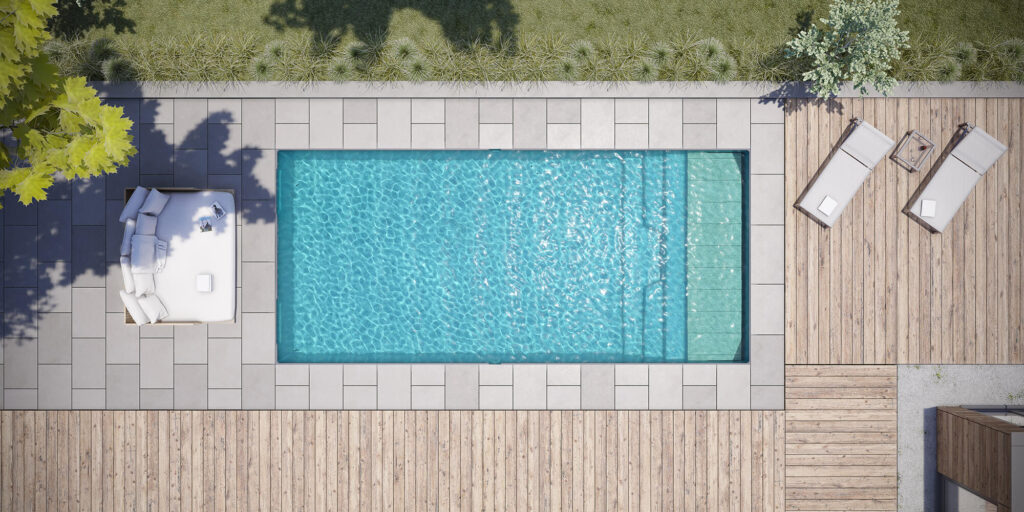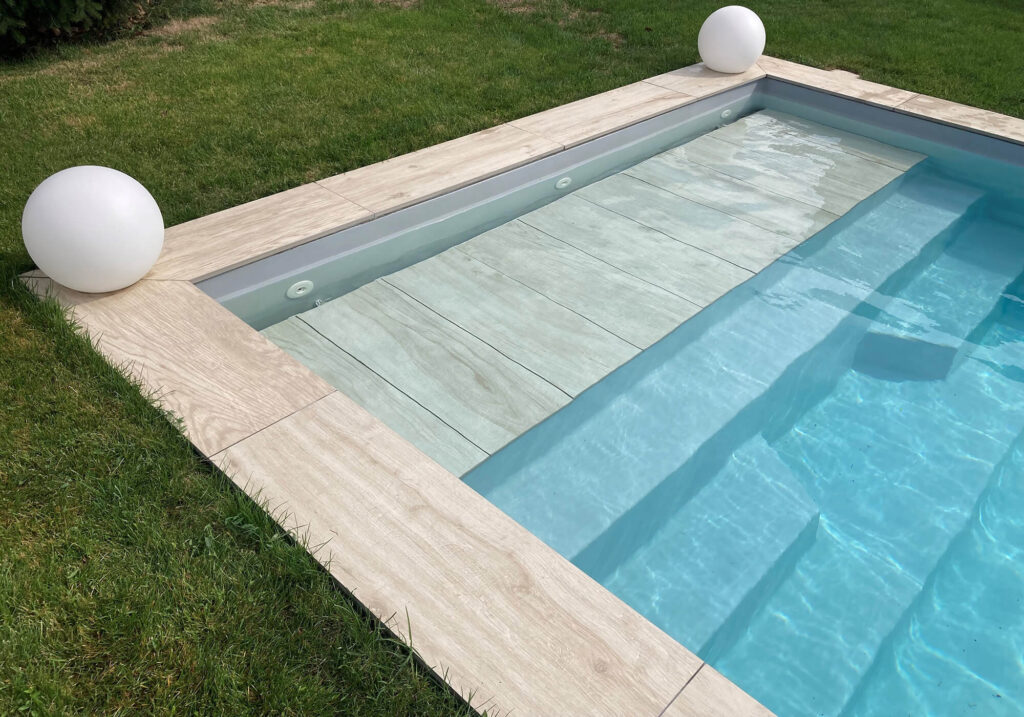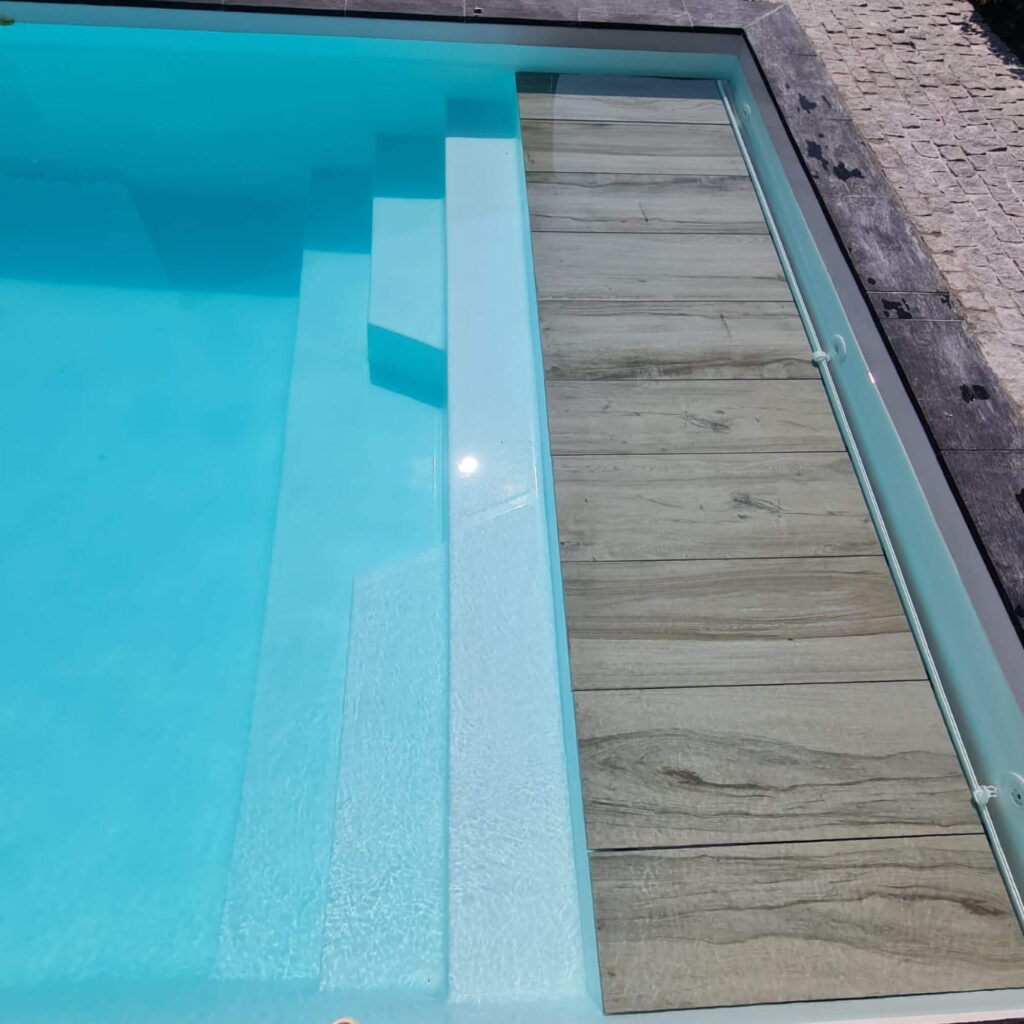Your desire to swim in your pool is spoiled by cloudy water ? Water that turns white (also known as milky water) is a frequent problem in
maintenance
swimming pools. This can be caused by a variety of parameters, such as limescale or pH levels that are too high.
Fortunately, a few simple steps can solve the problem, and more importantly, prevent it from happening again. In the following lines, Aboral will explain why youryour pool water is cloudyand how to correct the problem to restore crystal-clear water.
Why is my pool water cloudy?
Is the water in your pool becoming cloudy? In fact, a number of factors can lead to cloudy water in your pool. Before treating the problem effectively, it’s important to determine the precise cause of this reaction.
The causes may lie in the water itself or in your pool’s equipment. Here are the most common:
Lack of disinfectant
When the disinfectant level water (chlorine, bromine, etc.) is insufficient for the volume of your pool, your pool water will become cloudy. When pond water lacks disinfectant, it encourages the development of bacteria and micro-organisms in the water. The result? The pond water gradually becomes contaminated, making cloudy water and unsuitable for swimming.
To prevent the problem, remember to regularly check the chlorine level in your water and make sure it’s within the norm. This will prevent you from degrading water quality and, consequently, from ending up with a
green pool
in just a few days!
Insufficient filtration
Did you know that the filtration system alone accounts for 80% of water water treatment ? It retains external pollution and other dirt in the water (pollen, leaves, dust, etc.).
A pool with cloudy water may be a sign that the filtration time is not adapted to the number of bathers, the volume of water in the pool, the temperature or the frequency of bathing. If this is the case whitish deposits will begin to form and settle at the bottom of the pond. The result? Your pool water will become increasingly cloudy.
An unbalanced pH
To prevent pool water from becoming cloudy, the pH of your pool must be constant (i.e. between 7 and 7.4). Be careful: the outside temperature, and consequently the water temperature, has a direct impact on the pH, which can then rise and encourage limescale deposits.
In addition to regularly checking the water pH using control strips, a stabilizing stabilizing treatment treatment can also be considered if you notice a change in water quality.
Calcareous pool water
It’s not uncommon for your pool water to become cloudy due to a high concentration of limescale This is known as “hard water”.
If your pond is equipped with a sand filterWater that is too hard will tend to clog with sand. The result? The water can no longer pass through the sand and emerges uncleaned, leading to algae proliferation. The water becomes so cloudy that it’s hard to make out the bottom.
Algae residues
Over the past few days, you have experienced a problem withgreen water ? You’ve carefully followed our advice on catching up with your pond water, but it’s become cloudy?
This is actually the residue of dead algae still suspended in your pond. To get rid of them, targeted treatment and cleaning are essential.
How do I recover cloudy pool water?
Once you’ve identified the cause of this whitish water, you need to take action to get back to enjoying clear water and swimming as quickly as possible.
As a first step, restart filtration and add flocculant or a clarifying product to one of your pool’s skimmers. Filtration and the addition of pool clarifier should restore clear, limpid pool water.
If you don’t see any improvement, the problem is not with the filtration… Check the water parameters, especially the pH. In the event of very high pH (above 7.4) or very low pH (below 7), proceed with the pH rebalancing over several days.
Whether chlorine, bromine, salt or active oxygen is used, the disinfectant level must also be checked. disinfectant level.
If your water hasn’t cleared up after disinfection and pH rebalancingthen you need to carry out a shock water treatment, combining it with a flocculant or a clarifier. Then clean your pool to remove impurities and wash the filter. Use a anti-scale product and don’t forget to backwash the filter before restarting filtration.
Thanks to these steps, you should soon be back to crystal-clear water. However, as the saying goes, “ prevention is better than cure “. Regularly check and adjust your treatments and installations.
Finally, since every pool has its own particularities, don’t hesitate to call on the experts. Aboral experts for precise dosages of the treatment products you need to add.
Configure your pool online Back to news
